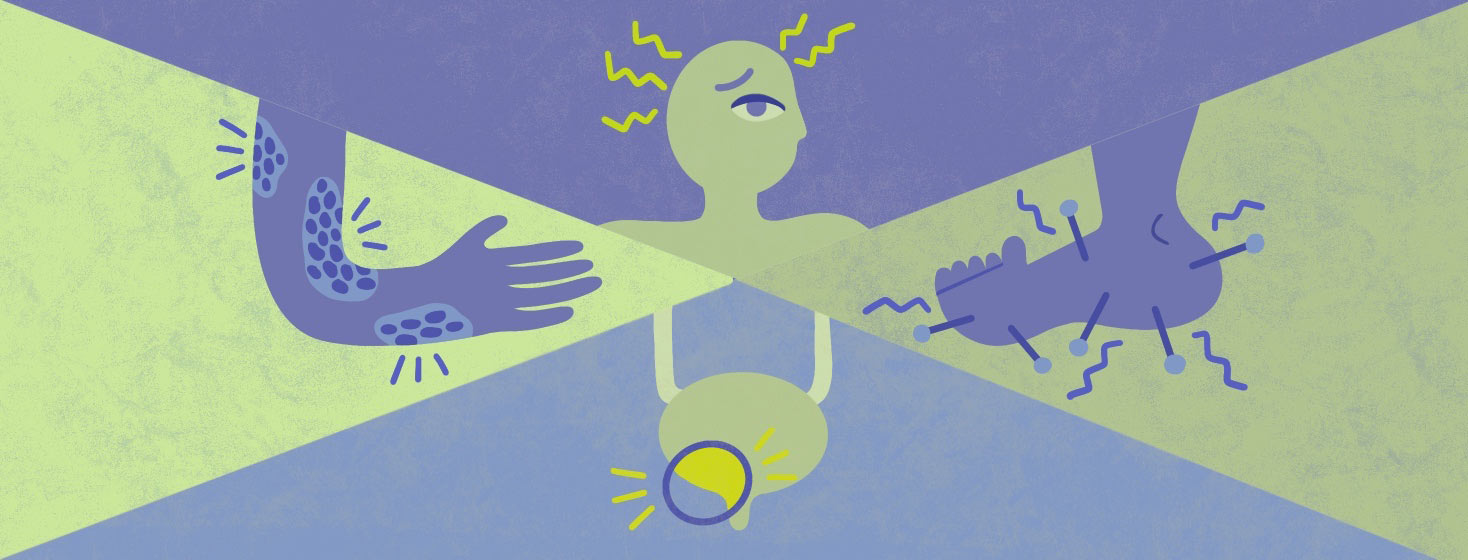Types of Painful Conditions Associated With HIV
Learning about being HIV-positive can be difficult enough. Realizing that there are many types of pain that people with HIV might endure can be even more unsettling. The source of these pains can be due to HIV itself or several other illnesses, associated or not associated with HIV.
Chronic headache and migraines
Some people with HIV may suffer from headaches or migraines. In one study of 200 people with HIV/AIDS, 27.5 percent suffered from chronic migraines. That's compared to 3 to 5 percent of the US population.1,2
Chronic migraine is defined as 15 or more migraine days a month. There is a link between poorly controlled HIV and headaches.1,2
I started having chronic migraines in late 2009. While I was not diagnosed with HIV until the end of 2017, considering how advanced my HIV/AIDS was when I was diagnosed, my doctors actually assume I became positive around 2010.
In my case, both issues likely started at the same time instead of when my HIV became poorly controlled.
Peripheral neuropathy
Peripheral neuropathy is a result of injury to the nerves outside of the brain and spinal cord that often causes weakness, numbness, and pain, usually in your hands and feet.3
Although it can affect different areas within your body, HIV can damage the peripheral nerves, which can lead to a neurological disorder known as peripheral neuropathy. The various symptoms of peripheral neuropathy include but are not limited to:4
- Numbness or pain in the hands and feet
- Muscle weakness in the hands and feet
- Numbness or tingling in the extremities
- Increased sensitivity to pain
Urinary tract infections
Urinary tract infections (also known as UTIs) are another source of pain for people with and without HIV. People living with HIV are more likely to develop UTIs due to the suppression of their immune system. And these infections can escalate quickly. Most people need a simple round of antibiotics to treat their UTI. In contrast, a person with HIV who develops a UTI may end up in the hospital.5
As a woman, I had endured a UTI a time or 2 before contracting HIV. But since I became HIV positive, I have had countless UTIs. It became so frustrating that I have a standing lab order to have a urinalysis done without having to see my infectious disease doctor first.
Varicella-zoster virus
Varicella-zoster virus is the virus that causes both varicella (chickenpox) and zoster (shingles). While chickenpox can occur in adults, it is most common in children. Chickenpox can however be more severe for an adult to experience.5,6
Shingles may or may not happen later in life. People who are older and people who are living with HIV, especially children living with HIV are more likely to develop shingles. It's bad enough that shingles is typically painful. The pain can also last after the rash goes away.5,6
When I was 30 years old, I ended up with shingles. It was an extremely unpleasant experience, which lasted for several weeks. The rash stayed on 1 side of my body. It also switched from itchy to extremely painful.
While these painful challenges are a possibility when it comes to living with HIV, it is not guaranteed. It's possible that someone could very much live their lives with HIV without having any of these painful experiences.

Join the conversation